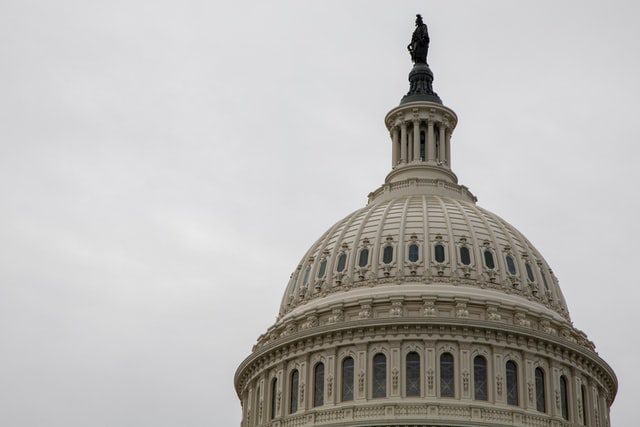
Photo by Joshua Sukoff on Unsplash
How do you view the Bill of Rights? Is it essential or non-essential to America’s health?
In a report from the Atlantic, it is mentioned that most Americans support the taking away of freedoms granted in our constitution (also known as constitutional rights) in order to give government more control to combat the coronavirus epidemic. Most respondents in a survey were willing to force health-care professionals to work despite risks to their own health, allow forced quarantines in government facilities, criminalize speech based on content, suspend all religious services, and allow the government to seize businesses.
If we learn anything from the Japanese internment camps during WWII, it is that unconstitutional violations of liberty are often made when the masses give government undue power in a time of fear. Consider the logic during WWII: Would allowing Japanese people to move about freely be dangerous to my life? What if Japanese-Americans may be spies? If we don’t restrict their liberties, someone might die! Ok, it is agreed, let’s put them in an internment camp. So what if 120,000 Japanese are unemployed? We are saving lives by only destroying a few!
But the fear of Americans should not be a license for more government control and power and unconstitutional actions. The Atlantic article indicates:
“Often, efforts to roll back civil liberties face political opposition, but now bipartisan support for rights-restricting COVID-19 responses could smooth the path for constitutional erosion. James Madison predicted as much when he described constitutional rights as “parchment barriers,” easily transgressed when the majority is so inclined. And indeed, history presents numerous examples of liberty violations made in the face of security threats: the Alien and Sedition Acts signed into law by President John Adams, Japanese American internment camps during WWII, and the use of torture after 9/11. After the threat has subsided, Americans must recognize any constitutional violations for what they were, lest they become the new normal.”
Consider that the 1st Amendment protects freedom of speech and freedom to worship. You have the right to say and believe things I disagree with. The 2nd Amendment protects our right to bear arms for the purpose of preventing tyranny by the government. The 4th Amendment protects citizens from unreasonable searches and seizures. The 5th Amendment explains that no person shall be deprived of life, liberty, or property, without due process of law.
As a criminal defense attorney, I am concerned about the growth of our police state. Consider the growth of our police state and the Bill of Rights violations in these recent news events:
- Raleigh Police arrest protestors that were practicing social distancing.
- Michigan Governor’s Executive Order prohibits travel between residences.
- Virginia police charge pastor with jailable misdemeanor for conducting a church service with 16 persons that practiced social distancing.
- Mendocino County in California ordered churches not to have singing in their live-streamed events.
The courts and citizens need to hold the executive branch accountable to execute the laws, not create executive orders that violate our constitution. The executive branch is trampling on the legislative branch and the Bill of Rights across the states.
In the case of On Fire Christian Center, Inc. v. Mayor Greg Fischer in Kentucky, U.S. District Court judge Justin Walker granted a temporary restraining order on a mayor’s ban on drive-in worship services where participants practiced social distancing from inside their vehicles. The judge explained that broad prohibitions against worship that are not narrowly tailored to achieve social distancing goals are unconstitutional. The judge explained:
“Louisville has targeted religious worship by prohibiting drive-in church services, while not prohibiting a multitude of other non-religious drive-ins and drive-throughs including, for example, drive-through liquor stores. Moreover, Louisville has not prohibited parking in parking lots more broadly including, again, the parking lots of liquor stores. When Louisville prohibits religious activity while permitting non-religious activities, its choice “must undergo the most rigorous of scrutiny…. That scrutiny requires Louisville to prove its interest is “compelling” and its regulation is “narrowly tailored to advance that interest.”
I would agree that “Constitutional Rights and Voluntary Action” are the keys to beating Covid. In an article by Attorney Timothy Snowball, he explains how businesses have stepped up to the plate to fight coronavirus. Doctors and nurses have stepped up to the plate without being forced to. Businesses have found ways to be innovative in producing PPE, antibody tests, and hand sanitizer and are working on vaccines.
In the last weeks, 22 million Americans have already filed for unemployment. As the financial situation in America worsens and the collateral damage of unlawful stay at home orders comes into view, Sweden’s hands off approach of individual responsibility is starting to bear fruit and may teach America a lesson on not letting fear dictate human rights.
In this time of panic, Americans should not let fear drive a further erosion of our Constitution and Bill of Rights. An essential role of government is to protect our God-given, unalienable rights. Rather than government telling us what is or is not essential, we should be reminding our government leaders what its essential duties are.
(Note: As a follow up to this post, I wrote: The Limit of Emergency Powers in Fighting Covid-19. The Emergency Powers we give the executive branch to fight coronavirus do not come without limit. What should those limits be?)